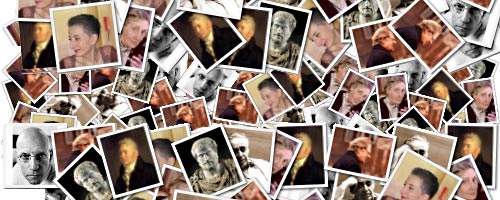Lit Crit 101
THE ANSWERS
if you want to have a look before seeing the answers: LIT QUIZ
You studied it at uni - formalism, structuralism, new criticism, new historicism, post-structuralism, Marxism, post-colonialism, feminism, etc – but maybe it’s been awhile. No matter! Certain key points stay stuck in your head and clues are thrown in to help.
© TBR 20/11 2012
This quiz may not be archived, reproduced or distributed further without the author's express permission. Please see our conditions of use.
The Barcelona Review is a registered non-profit organization

